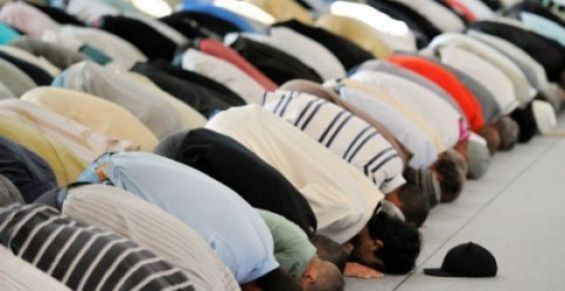The international coronavirus health crisis has brought changes to one of Islam’s most performed rituals. As Ramadan is approaching, Muslims around the world have been wondering how their usual rites would be affected by the lockdown. Some of them have even suggested holding online prayer gatherings to perform Taraweeh, additional ritual prayers performed by Sunni Muslims during the holy month of Ramadan.
In Morocco, Muslim scholar Ahmed Raissouni welcomes the idea of performing Taraweeh while guided remotely by an imam through TV or internet. The President of the International Union of Muslim Scholars stressed, during an online conference held on Sunday April 19 in Meknes by the Unity and Reform Movement (MUR), that «unlike compulsory prayers, there has been a number of fatwas» in the past that had authorized performing Taraweeh at home while guided by an imam through radio.
«Anyone who wishes to perform virtual Taraweeh prayers is free to do it given the fact that several countries will be holding prayers broadcasted on TV», he said. He also mentioned that at the mosque in Mecca, Taraweeh prayers will be performed without the presence of worshippers and will be broadcasted on TV.
«The ideal is to pray at home»
Mustapha Benhamza, a member of the Superior Council of Ulemas, came with a different opinion on the matter. For the Moroccan scholar, «in these times of health emergencies, the ideal is to pray at home», he said in a video posted on YouTube.
He explained that performing Taraweeh remotely «is a meaningless and unfouded type of rigorism». The scholar also warned against «opening doors that will never close» on the unity of Muslims and «their presence in mosques after the end of the pandemic».
Benhamza recalled that «Moroccans in the countryside continue to pray at home, especially for those who live far from places of worship». «You have to seize the opportunity to read Quran at home», he pleaded.
His opinion was highly supported in Algeria. In fact, teh country's Fatwa Ministerial Commission urged Algerian, on Monday, to perfrom Taraweeh prayers at home. In Tunisia, the Minister of Islamic Affairs rejected the opening of mosques during Ramadan.
The Moroccan government decided on Saturday April 18 to extend the state of health emergency until May 20. «All the precautionary and preventive measures of the first stage of the state of health emergency will have to be implemented and respected», the government said in a press release. Mosques will thus remain closed during this period.





 chargement...
chargement...













